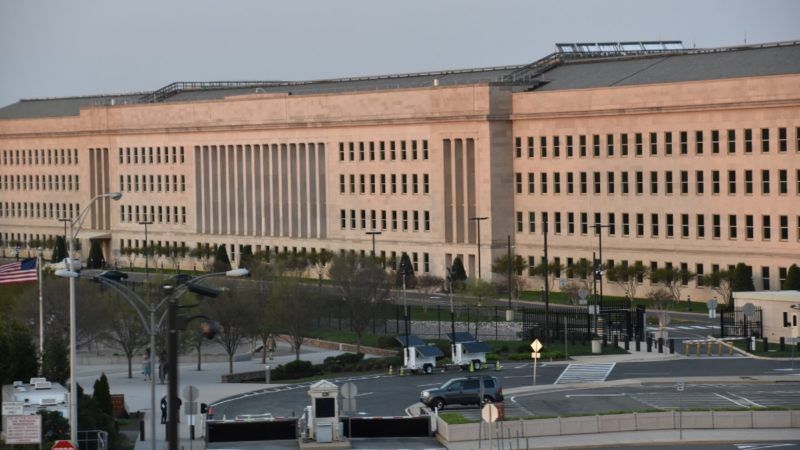As Pandemic Spending Rises, Pentagon Spending Needs Cuts
The coronavirus pandemic should certainly occasion more prudence at the Pentagon in strategy and spending alike.

If there was any lingering hope of President Donald Trump making good on his promise to "quickly" balance the federal budget, COVID-19 has obliterated it once and for all. Pandemic relief spending has pushed 2020's federal budget deficit north of $3.5 trillion while the economy is forecast to shrink by around 6 percent this year. As borrowing increases and economic growth is erased, publicly held debt is projected to exceed GDP for the first time since World War II.
These numbers are daunting, but the magnitude of the debt we're taking on to grapple with the pandemic's economic effects cannot be an excuse for excess. To all the talk of responsibilities COVID-19 has occasioned, add one more: Not leaving future generations with a balance higher than must be. As federal revenues decline, no expenditure should escape scrutiny, least of all the single biggest slice of the discretionary pie: Pentagon spending.
With a foreign policy pivot toward restraint and diplomacy, we can spend less—far less—on the military while strengthening U.S. security and peace. Here are five ways to start.
Reassess priorities. Effective foreign policy reform requires Washington to recognize its resources are limited and their use must be better prioritized. The purpose of U.S. defense spending is U.S. defense, not policing the world, meddling in other nations' internal politics, or attempting to manage the balance of power in regions on the other side of the planet. The interventionist, military-first approach of the last two decades was always dangerous, expensive, and inhumane. It is clearer now than ever it is a mistake we cannot afford. Trump reportedly realizes this concerning Afghanistan, but the lesson must be applied more broadly.
End wars. The single most important way to reduce Pentagon spending and bolster U.S. security is to stop fighting a litany of counterproductive wars with no plausible path to anything like victory and an unacceptably high cost in blood and treasure. Get out of Iraq, Afghanistan, Syria, Yemen, Libya, Somalia, and smaller conflicts around the Middle East and North Africa. Don't start a new war with Iran. Indeed, stop using military intervention as the primary option in U.S. foreign policy and rebuild American foreign affairs around patient, pragmatic diplomacy instead.
Share burdens. Trump has made a point of complaining about NATO allies free-riding on U.S. security, and the pandemic's downward pressure on defense spending is an opportunity to put words into action. We should wind down U.S. influence and activity in NATO; bring U.S. troops home from permanent bases in Europe; and end U.S. involvement in Eastern European conflicts with Russia, which present an enormous risk of escalation into great power conflict.
Reduce footprint. In addition to reducing U.S. military presence in Europe, Washington should dramatically scale down our foreign military bases elsewhere around the world. This includes conducting a new round of Base Realignment and Closure (BRAC), which shutters unused facilities and others the Pentagon has already determined it does not need. But it should also include a bigger strategic move away from the assumption that it benefits the United States to have around 800 overseas bases in 70 nations. This global military sprawl is abnormal and unnecessary. It exposes us to needless risk and hikes the Pentagon's annual baseline far too high.
Cut waste. To call for cutting Pentagon waste is a fiscal hawk cliche because the Department of Defense has a history of unreliable accounting and indefensible expenditures, perhaps no worse than average in Washington, but certainly on a larger scale. Better oversight will lower spending, and less spending will make good oversight more feasible. This is less important than strategic reform and cannot be its substitute, but it is probably also less controversial.
Writing at Foreign Affairs this month, Massachusetts Institute of Technology's Barry R. Posen mulls the possibility of a "pax epidemica," that widespread illness might curtail global military conflict. Whether that theory proves correct, the coronavirus pandemic should certainly occasion more prudence at the Pentagon in strategy and spending alike.


Show Comments (19)